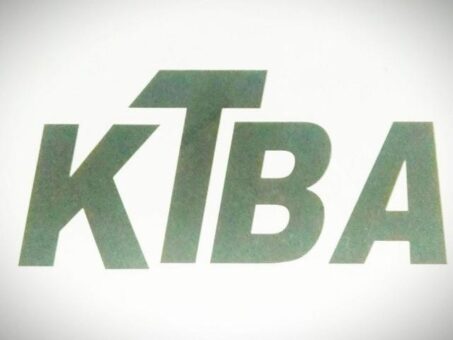Karachi Tax Bar Association (KTBA) on Friday highlighted difficulties faced by pharmaceutical industry in reporting of sales after implementation of Finance Act, 2022.
KTBA President Syed Rehan Hasan Jafri in a letter to Asim Ahmad, Chairman of Federal Board of Revenue (FBR) apprised about the implications faced by the bar members after amendments introduced in the Sales Tax Act, 1990 through Finance Act, 2022, in respect with pharmaceutical industry.
READ MORE: FBR directs speedy clearance of flood relief goods
The KTBA pointed that through the Finance Act, 2022 the Serial No.19 of the Fifth Schedule to the Act containing “substances registered as drugs” was omitted and new serial Nos. 81 and 82 were introduced in Table-1 of the Eighth Schedule to the Act.
The whole text of the new entries is being reproduced hereunder to facilitate a quick reference:
81. Manufacture or import of substances registered as drugs under the Drugs Act, 1976 shall charge one per cent sales tax subject to the conditions that:
(i) Tax charged and deposited by the manufacturer or importer, as the case may be, shall be final discharge of tax in the supply chain.
READ MORE: FBR directs 81 retailers to integrate with POS system
(ii) No input tax shall be adjusted by the manufacturer or importer.
82. Active Pharmaceutical ingredients, excluding excipients, for manufacture of drugs registered under the Drugs Act, 1976 or raw materials for the basic manufacture of pharmaceutical active ingredients. The sales tax shall be charged at one per cent subject to the conditions that:
(i) DRAP shall certify item-wise requirement of manufacturers of drugs and APIs and in case of import shall furnish all relevant information to Pakistan Customs Computerized System; and
(ii) No input tax shall be adjusted by the manufacturer or importer.
The KTBA interpreted the amendments as the manufacturer/importer of drugs shall charge and pay 1 per cent sales tax, which would be final discharge of their sales tax liability in the entire supply chain of pharma products.
“This clearly implies that if a manufacturer or an importer has paid the above 1 per cent sales tax on supply or import of finished goods (drugs), respectively, then no sales tax would be applicable on the subsequent supply of such pharma goods,” it added.
READ MORE: KTBA recommends changes in IRIS for calculating deemed income on properties
The tax bar highlighted the issue, which are being faced by the pharmaceutical industry due to the recent amendments.
Reference of serial No.19 of Fifth Schedule to the Act is not being appeared at the time of declaring sales returns/cancellation through credit/debit notes at Annexure-C (uploaded through invoice management system). Consequently, sales returns pertaining to January 2022 to June 2022 made at zero per cent, are not being declared in the tax periods of July 2022 and August 2022.
Option for reporting exempt sales made by pharmaceutical distributors is not available at Annexure-C (uploaded through invoice management system) for the tax period of July 2022 due to which, pharmaceutical distributors are unable to file their monthly sales tax return.
The tax bar also complained that multiple queries have already been raised vide emails at FBR helpline by the bar members but till to date no solution or a guideline has been provided or explained.
READ MORE: KTBA demands suspending further tax due to practical issues
In view of the above, the FBR chairman has been requested to make necessary amendments in IRIS so that the pharmaceutical distributors are enabled to file their monthly sales tax returns in timely manner.
Meanwhile, till the issue highlighted above remains unresolved, your office is requested to intervene and condone the due date for filing monthly sales returns for the industry.
The KTBA urged the FBR chairman to provide redressal to the taxpayers connected with Pharma Industry and their distributors as these taxpayers are contributing their due share into the government exchequer as their moral and legal obligation.
